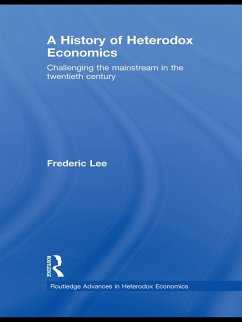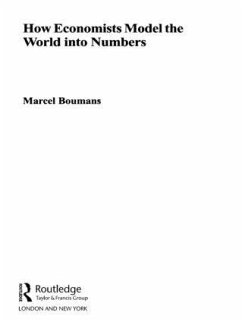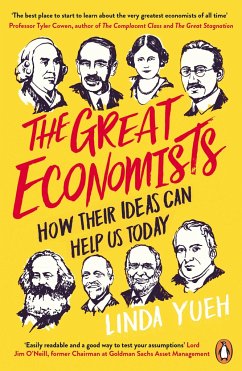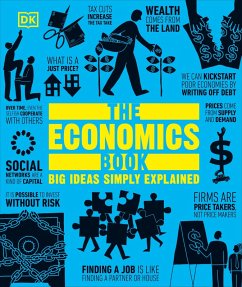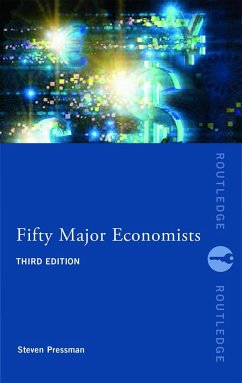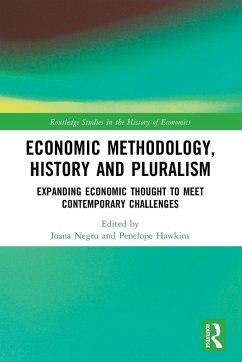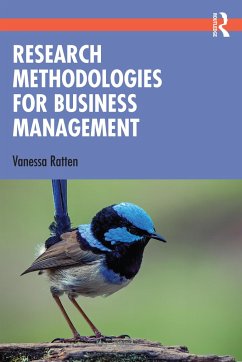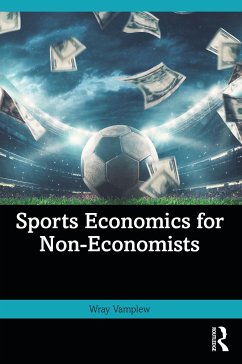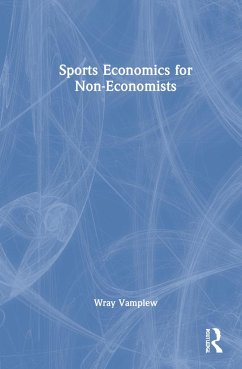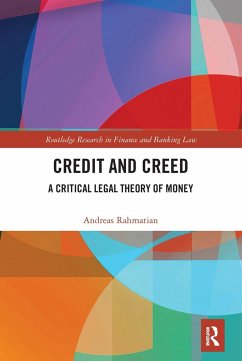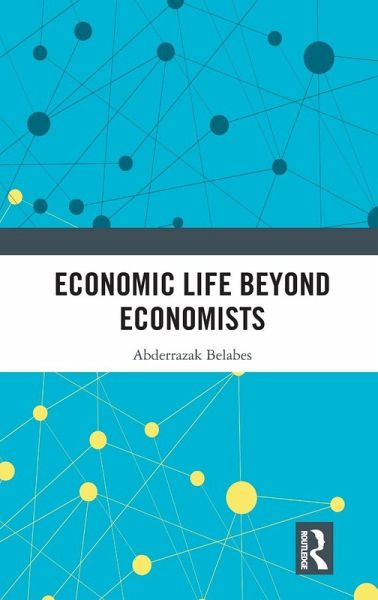
Economic Life Beyond Economists
Versandkostenfrei!
Versandfertig in 6-10 Tagen
154,99 €
inkl. MwSt.
Weitere Ausgaben:

PAYBACK Punkte
77 °P sammeln!
Through an examination of the work of great scholars from fields including philosophy, literature, philology, semiology, quantum physics, history, and anthropology, this book argues that building on the contribution of non-economists can open new areas of reflection in economics beyond the usual schools of thought.The purpose of the book is twofold. First, it offers a critique and discussion of the limits of contemporary economic discourse, both mainstream and self-styled alternative theories. The central theme on which the book is built is that the discipline of economics fails to examine the...
Through an examination of the work of great scholars from fields including philosophy, literature, philology, semiology, quantum physics, history, and anthropology, this book argues that building on the contribution of non-economists can open new areas of reflection in economics beyond the usual schools of thought.
The purpose of the book is twofold. First, it offers a critique and discussion of the limits of contemporary economic discourse, both mainstream and self-styled alternative theories. The central theme on which the book is built is that the discipline of economics fails to examine the nature of social reality in a systematic way. This prompts the economists to become fully aware of the methodology on which they base their representation, analysis, and argumentation in a way that economists currently are not. Second, the book proposes alternative ways of thinking that can help readers of economics to overcome the current limitations of their discipline. This means going beyond various dominant dualities - orthodox/heterodox, micro/ macro, epistemology/ontology - because it is not a question of doing 'the economy' differently, but of overcoming the economy as a representation of the world that strives to submit everything to its realm. Thus, the book does not simply propose a broader conceptual framework than that portrayed by mainstream economists or those who propose an alternative approach but raises questions that do not usually come from the minds of economists at all.
The book will be of particular interest to readers of economic methodology and pluralism, philosophers of science, and other social scientists interested in methodological issues.
The purpose of the book is twofold. First, it offers a critique and discussion of the limits of contemporary economic discourse, both mainstream and self-styled alternative theories. The central theme on which the book is built is that the discipline of economics fails to examine the nature of social reality in a systematic way. This prompts the economists to become fully aware of the methodology on which they base their representation, analysis, and argumentation in a way that economists currently are not. Second, the book proposes alternative ways of thinking that can help readers of economics to overcome the current limitations of their discipline. This means going beyond various dominant dualities - orthodox/heterodox, micro/ macro, epistemology/ontology - because it is not a question of doing 'the economy' differently, but of overcoming the economy as a representation of the world that strives to submit everything to its realm. Thus, the book does not simply propose a broader conceptual framework than that portrayed by mainstream economists or those who propose an alternative approach but raises questions that do not usually come from the minds of economists at all.
The book will be of particular interest to readers of economic methodology and pluralism, philosophers of science, and other social scientists interested in methodological issues.





